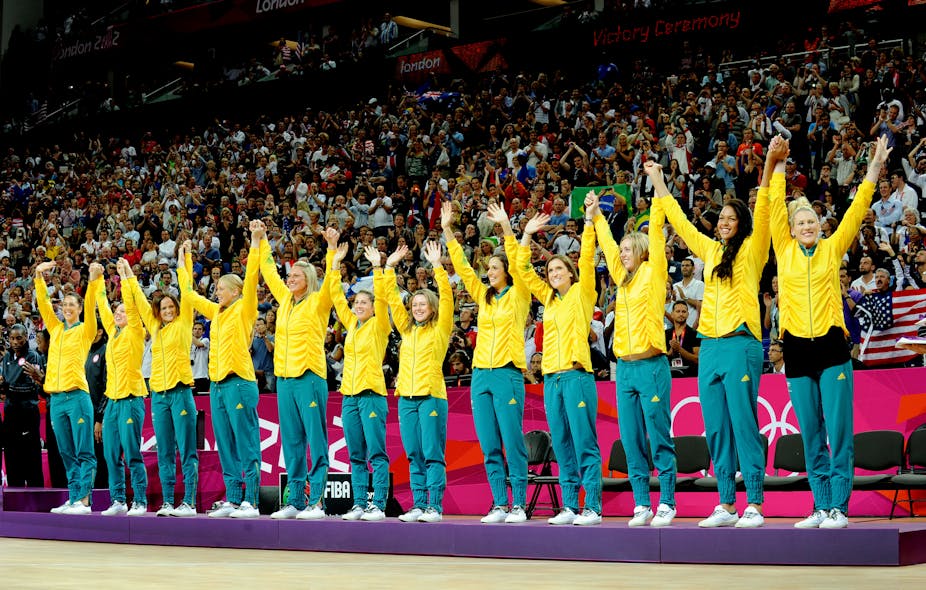With the London Games fading into memory it’s time now for us to focus on Rio 2016. One of the questions on many people’s lips is one of whether Australia will do better on the medal tally in Rio than we did in London?
Without going into the in-and-outs of whether the media hype affected our athlete’s performance or even our nation’s expectations, the critical question as I see it is: What does Australia need to concentrate on to at least maintain its place in the world hierarchy of Olympic success?
Since 1996, Australia has been well recognised for punching above its weight at the Olympics – that is, in terms of medals per head of population. But now many other countries (including those that now sit above us on the medal tally) have visited Australia, researched what and how we have done “high-performance sport”, and implemented similar strategies with high levels of investment. Such countries include the USA, China, France, Germany and Great Britain.
In an interview during Channel 9’s Olympics coverage last week, the famous American track athlete Michael Johnson explained what many in the sport arena already knew: Australia used to be renowned for our innovation and high-performance sport and now other countries have gone past us at a great rate of knots.
So to maintain or improve our ranking at Rio (and beyond) perhaps we need to look in more detail at what these other countries have done to achieve their success.
Importantly, it’s not necessarily just about more funding for Olympic sports – though every little bit helps.
One important factor is athlete support. The US, China and GB all have systems that provide a safety net for their athletes through either paid tertiary education or athlete-friendly employment. These safety nets top up the athletes’ meagre sports earnings and help to support their training and other life commitments.
Talking with one of Monash University’s elite student athletes the other day it became clear to me that we (the public) expect our athletes to perform at the top of their profession but we still treat them (and pay/ support/ fund them) like amateurs.
One thing that would help our athletes stay in a good space mentally and physically is easier and paid access to tertiary education. This will help better prepare the athletes for life after sport. After all, there are only so many sports media jobs going around!
Since 2004 Australia’s Elite Athlete Friendly University (EAFU) network has been better than having nothing but there is still great room for improvement in comparison to the support Team GB student athletes got in the lead-up to London. Elite athlete students in the US, China and France received similar support.
Australia’s Olympic sports could do worse than investing in their athletes going to the World University Summer Games in 2013 and 2015, both of which are multi-sport events rivalling the Olympics for size, grandeur and experience. After all, the US, China, France and Germany send their students.
We also need a more centralised and cohesive relationship between university-based research and sport. Australia is a clever country but we still don’t have a centralised process that truly connects the research with the athletes and sporting bodies that are competing against better-funded countries.
If there was an area in which greater funding, greater focus and better understanding might make an immediate difference to our performance, this is it.
Well funded talent-transfer and talent-identification systems are also important to ensure that athletes who are capable of achieving can do so in a sport that was not their first. These programs served Team GB well in the lead-up to London. As a nation with a comparatively small population we can’t afford for talented athletes who drop out or don’t achieve in their first sport of choice not to be given opportunities in another sporting discipline.
To maintain our position on the medal tally in Rio 2016, the medal-to-population data says Australia probably doesn’t have to change too many things too radically. Our current systems will allow for many of our current crop of talented athletes to stay at or near the top of the game. And, of course, we will have a few bolters get up from nowhere. There will also be athletes who mature and improve on their London performance.
But we must ensure that all athletes have a fighting chance against the better-funded athlete support and research systems other nations have attained.
With any luck, we won’t even need to have this discussion in the week after the Rio Olympics.

